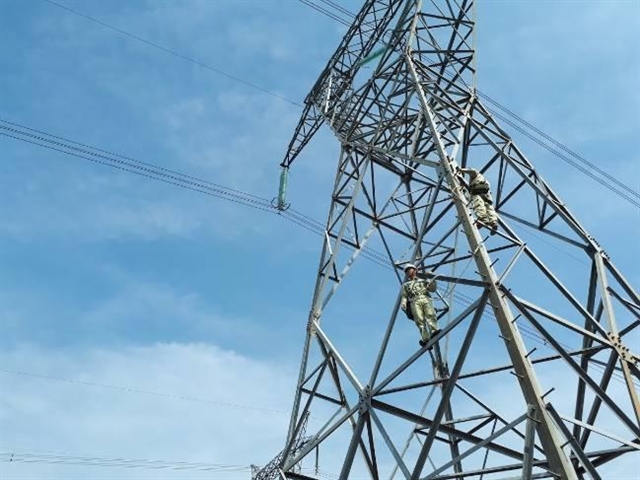 Economy
Economy


|
| The power shortage was due to delayed progress in 47 out of 62 large power projects. — Photo moitruong.net |
HÀ NỘI — Việt Nam could face an electricity shortage of 6.6 billion kWh in 2021 and 11.8 billion kWh in 2022. The shortage could increase to 15 billion kWh in 2023, according to the Ministry of Industry and Trade (MoIT).
Phương Hoàng Kim, director of the ministry’s Electricity and Renewable Energy Authority, said the reason for the shortage was due to delayed progress in 47 out of 62 power projects with capacities of more than 200MW in the Việt Nam Power Master Plan VII.
It was expected that the electricity sector would still meet the country’s power demand in 2020. However, there would be risks of a shortage if the demand is higher than forecast, poor water flow to hydropower reservoirs or a lack of coal and gas for electricity production, Kim said.
In the first half of the year, electricity consumption increased 10 per cent from the same period last year because of prolonged hot weather.
The power consumption was expected to continue to increase by 10 per cent at year-end.
Currently, power projects have been implemented in three investment models including those invested by Việt Nam Electricity (EVN), the Việt Nam National Oil and Gas Group (PetroVietnam) and Việt Nam National Coal and Minerals Group (Vinacomin); build-operate-transfer (BOT) projects and independent power producer (IPP) projects.
Deputy Minister of Industry and Trade Hoàng Quốc Vượng said the main reason for the delayed progress was due to capital and contractor issues. Power projects are often on a big scale with total investment of more than US$2 billion each and long construction times. Therefore, it was not easy to find capable contractors. In addition, the removal of the Government guarantee mechanism for power projects has made it difficult to raise capital.
In addition, it took a long time for BOT projects to negotiate power prices with EVN to ensure their profits, thus causing delays.
Vượng added that prolonged land clearance and low power tariffs were not attractive enough for investors.
He proposed that the Government should promote the implementation of renewable energy projects as they take a shorter time to complete.
According to EVN, it took only six months to implement a solar power project while that of a 220kV or 500kV plant was three to five years.
He added that the ministry would consider importing electricity from Laos and China to resolve the power shortage. However, this would be a temporary solution. The country should accelerate the progress of large power projects.
Trịnh Quốc Vũ, deputy director of Energy Saving and Sustainable Development Department said the sector should improve businesses’ awareness to save power. Some of the firms signed a commitment with EVN and the department to save 10 per cent of power consumption this year.
Minister Trần Tuấn Anh asked EVN and relevant agencies to quickly complete projects in the Power Master Plan VII while updating regulations to attract investment into the sector.
Anh also asked to review regulations on responsibilities of investors of delayed projects and localities’ leaders. — VNS




